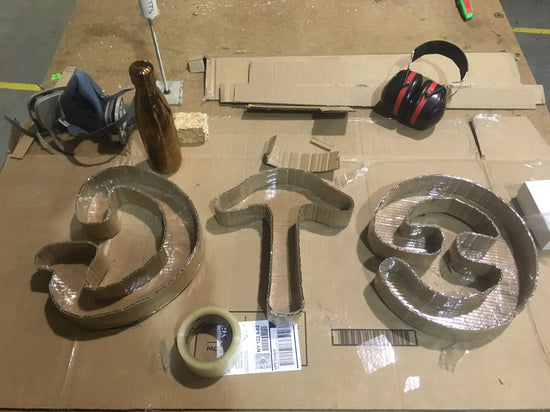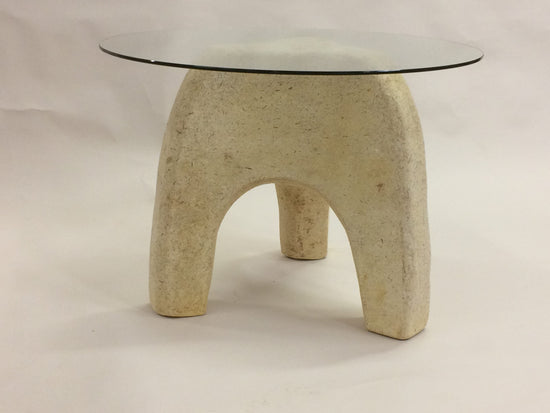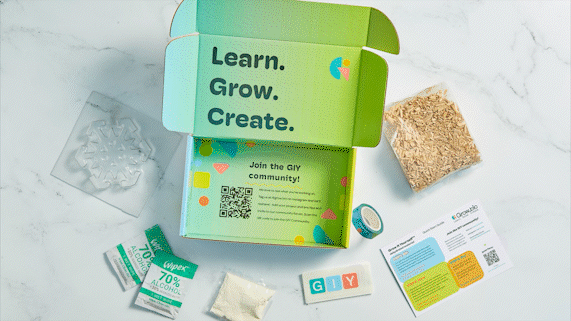Q: What first sparked your interest in the realm of mycology?
A:
For the past several years my work has been focused on exploring the potential of waste materials. I have experimented with many different materials in an effort to exhaust the question:
- When does something become a waste material?
This material exploration and interest in food brought me to experiment with mushroom cultivation. What was so interesting to me about the cultivation process was that mushrooms actually thrive on waste materials. I began to experiment with working to utilize the abundance of coffee grounds, leftover bagels, and other materials from local businesses to cultivate oyster mushrooms.
I quickly began researching and immersing myself in experiments to understand:
- What helps a mushroom grow?
- And how can a mushroom change our perspective about waste?
As I collected, experimented, and learned about the local waste stream in my community, I began to see the importance of communication and collaboration.
Quickly I began to wonder:
- How can a mushroom teach us to collaborate?
- And how are mushrooms a metaphor for community?
Collecting waste materials from local businesses in the area, led me to fully engage in dialogue with people in my community. I began to realize that I was not alone in my efforts to utilize waste materials. These business owners and other community members were also trying to figure out how to reduce their waste. We started to talk about developing a system for recycling waste while at the same time cultivating community.
We had meeting after meeting, week to week, and very quickly our network began to expand in both depth and width. As the process of preparing unfolded, things became very clear. Allowing a mushroom to lead us seemed like the perfect solution to recycling waste and cultivating community.
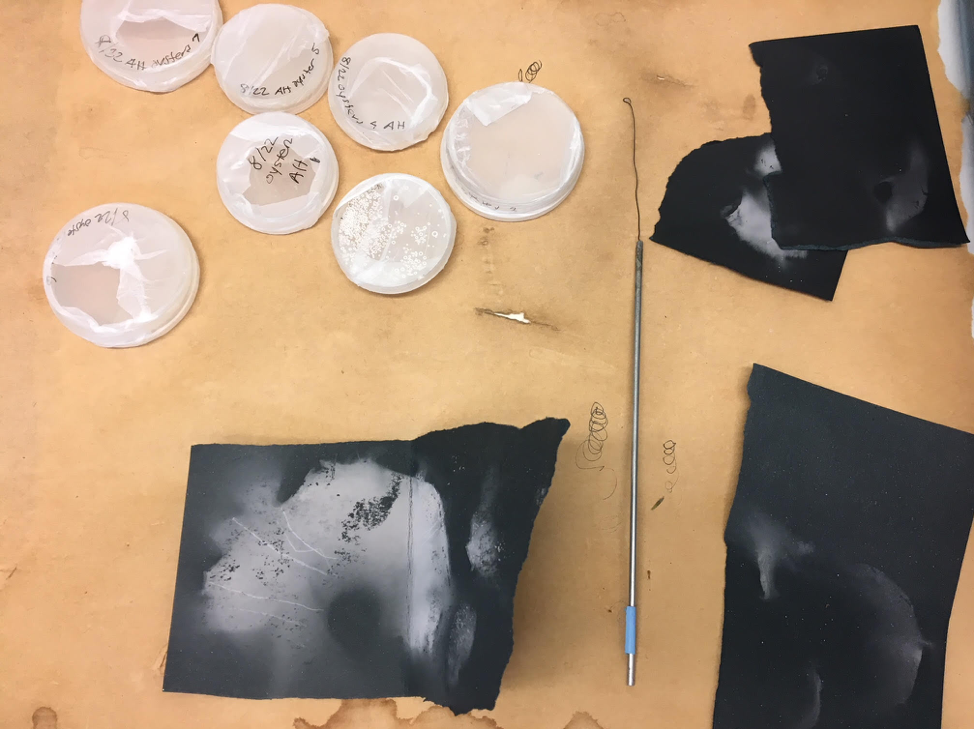
Q: What exactly are you researching/working on?
A: These questions, experiments, and conversations about mushrooms, waste, and community led to Mushroom Farm, an interdisciplinary cooperative project, that focuses on social and ecological transformation by developing a system for rethinking the potential of waste materials as a medium to produce oyster mushrooms.
Mushroom Farm is a collaborative effort to cultivate, educate, learn, and build cross-generational relationships to create a source of food rich in protein available to everyone. We are in the process of designing a structure to house the mushrooms that utilizes sustainable sources for temperature control and water.
Simultaneously, I have begun the process of cultivating from spore in the lab at The State University of New York in New Paltz, where I am a graduate student in sculpture, with the biology department technician Tressa Coulter and artist Moira Williams, in an effort to produce spawn for continuous mushroom growth as to not have to depend on purchasing spawn from outside sources for the farm.
Throughout the process of cultivating from spore, I have become very curious in looking to the mushroom to try and understand:
- How can a mushroom teach us to communicate?
I believe that this natural process is something that we can look to for understanding collaboration, communication, and community. Each person involved in Mushroom Farm is a spore and only when combined can we form a mycelial mat that allows for a beautiful fruiting.
(Video clip from culturing oyster mushroom instructions led by Moira Williams).
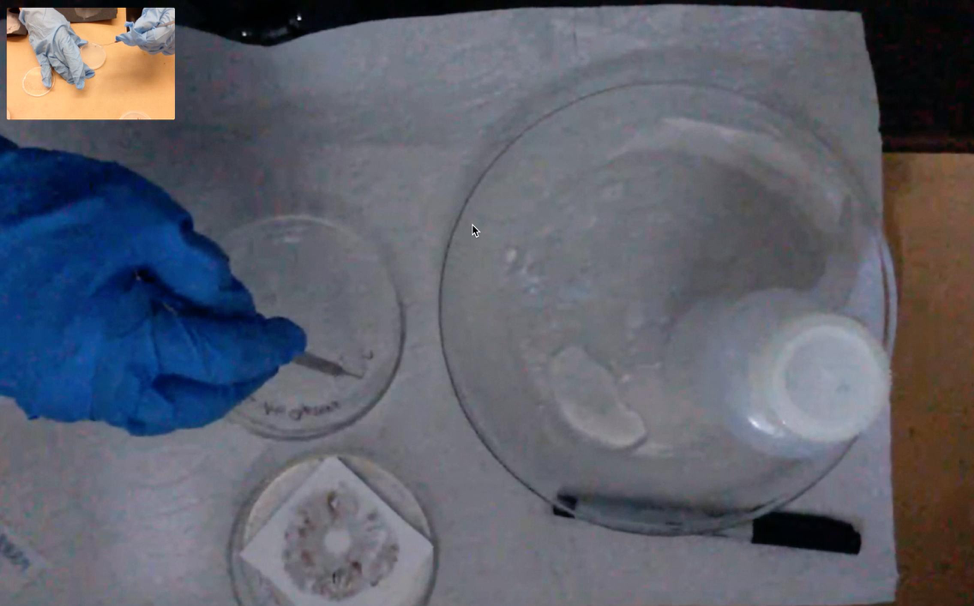
Q: What is the purpose of your research/work?
A: The purpose of this research is to utilize mushroom growth as a way to help change our relationship with waste, to bring community together with food, and to look to the mushroom metaphorically teach us how to be.
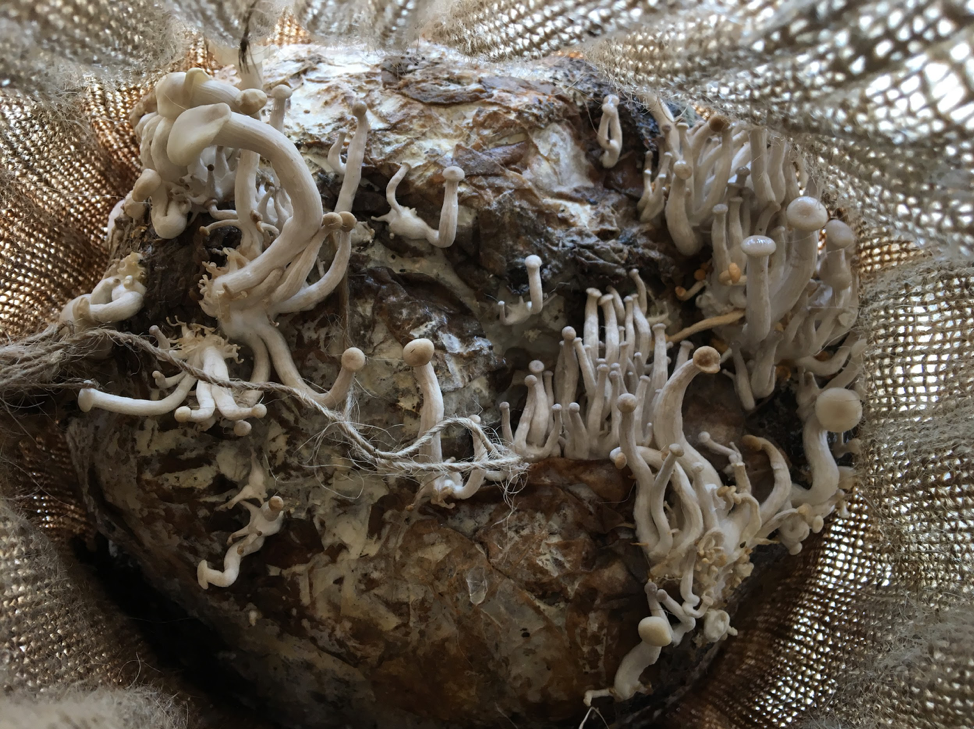
Q: What do you like most about working with mushrooms/mycelium?
A:Mushrooms allow for a point of entry from all walks of life, from culinary, to environmental remediation, to medicinal, spiritual, and its rich metaphorical potential. I believe that we can look to mushrooms as a blueprint to show us ways of navigating the world in a way that is rooted in creative thinking, resilience, and abundance that can become reality by the way we interact and communicate.



